Related Research Articles

An encyclopedia or encyclopaedia is a reference work or compendium providing summaries of knowledge, either general or special, in a particular field or discipline. Encyclopedias are divided into articles or entries that are arranged alphabetically by article name or by thematic categories, or else are hyperlinked and searchable. Encyclopedia entries are longer and more detailed than those in most dictionaries. Generally speaking, encyclopedia articles focus on factual information concerning the subject named in the article's title; this is unlike dictionary entries, which focus on linguistic information about words, such as their etymology, meaning, pronunciation, use, and grammatical forms.

The Encyclopædia Britannica is a general knowledge English-language encyclopaedia. It has been published by Encyclopædia Britannica, Inc. since 1768, although the company has changed ownership seven times. The encyclopaedia is maintained by about 100 full-time editors and more than 4,000 contributors. The 2010 version of the 15th edition, which spans 32 volumes and 32,640 pages, was the last printed edition. Since 2016, it has been published exclusively as an online encyclopaedia.
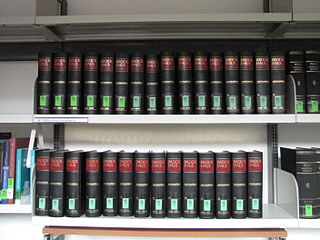
A reference work is a work, such as a paper, book or periodical, to which one can refer for information. The information is intended to be found quickly when needed. Such works are usually referred to for particular pieces of information, rather than read beginning to end. The writing style used in these works is informative; the authors avoid opinions and the use of the first person, and emphasize facts.

The Encyclopædia Britannica Eleventh Edition (1910–1911) is a 29-volume reference work, an edition of the Encyclopædia Britannica. It was developed during the encyclopaedia's transition from a British to an American publication. Some of its articles were written by the best-known scholars of the time. This edition of the encyclopaedia, containing 40,000 entries, has entered the public domain and is readily available on the Internet. Its use in modern scholarship and as a reliable source has been deemed problematic due to the outdated nature of some of its content. Modern scholars have deemed some articles as cultural artifacts of the 19th and early 20th centuries. Nevertheless, the 11th edition has retained considerable value as a time capsule of scientific and historical information, as well as scholarly attitudes of the era immediately preceding World War I.
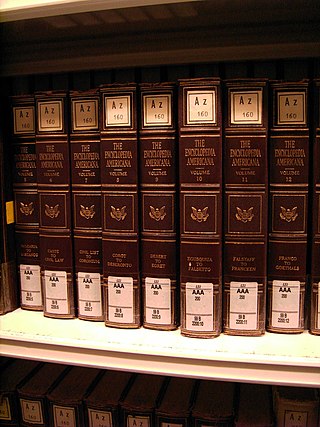
Encyclopedia Americana is a general encyclopedia written in American English. It was the first general encyclopedia of any magnitude to be published in North America. With Collier's Encyclopedia and Encyclopædia Britannica, Encyclopedia Americana became one of the three major and large English-language general encyclopedias; the three were sometimes collectively called "the ABCs of encyclopedias". Following the acquisition of Grolier in 2000, the encyclopedia has been produced by Scholastic.

Thomas John Barnardo was an Irish, Christian philanthropist and founder and director of homes for poor and deprived children. From the foundation of the first Barnardo's home in 1867 to the date of Barnardo's death, nearly 60,000 children had been taken in.
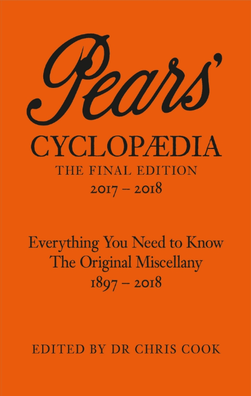
Pears' Cyclopaedia was a one-volume encyclopaedia published in the United Kingdom. Pears' Soap launched the original Pears' Shilling Cyclopaedia in December 1897, the year of Queen Victoria's Diamond Jubilee.
The World Book Encyclopedia is an American encyclopedia. World Book was first published in 1917. Since 1925, a new edition of the encyclopedia has been published annually. Although published online in digital form for a number of years, World Book is currently the only American encyclopedia which also still provides a print edition. The encyclopedia is designed to cover major areas of knowledge uniformly, but it shows particular strength in scientific, technical, historical and medical subjects.
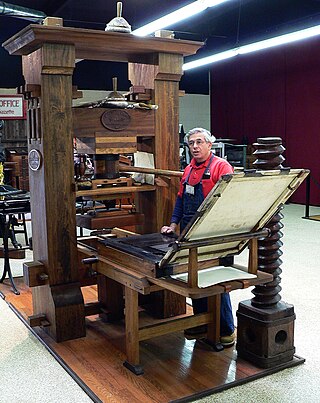
To publish is to make content available to the general public. While specific use of the term may vary among countries, it is usually applied to text, images, or other audio-visual content, including paper. Publication means the act of publishing, and also any copies issued for public distribution.

Chambers's Encyclopaedia was founded in 1859 by William and Robert Chambers of Edinburgh and became one of the most important English language encyclopaedias of the 19th and 20th centuries, developing a reputation for accuracy and scholarliness that was reflected in other works produced by the Chambers publishing company. The encyclopaedia is no longer produced. A selection of illustrations and woodblocks used to produce the first two editions of the encyclopaedia can be seen on a digital resource hosted on the National Museums Scotland website.
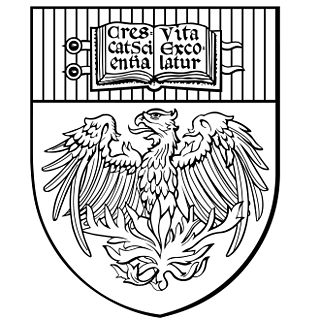
The University of Chicago Press is the university press of the University of Chicago, a private research university in Chicago, Illinois. It is the largest and one of the oldest university presses in the United States. It publishes a wide range of academic titles, including The Chicago Manual of Style, numerous academic journals, and advanced monographs in the academic fields. The press is located just south of the Midway Plaisance on the University of Chicago campus.
The British Pharmacopoeia (BP) is the national pharmacopoeia of the United Kingdom. It is an annually published collection of quality standards for medicinal substances in the UK, which is used by individuals and organisations involved in pharmaceutical research, development, manufacture and testing.

Sir Thomas Clifford Allbutt KCB, MA, MD, ScD, FRS was an English physician best known for his role as president of the British Medical Association 1920, for inventing the clinical thermometer, and for supporting Sir William Osler in founding the History of Medicine Society.
Martindale-Hubbell is an information services company to the legal profession that was founded in 1868. The company publishes the Martindale-Hubbell Law Directory, which provides background information on lawyers and law firms in the United States and other countries. It also published the Martindale Hubbell Law Digest, a summary of laws around the world. Martindale-Hubbell is owned by consumer website company Internet Brands.

A periodical literature is a published work that appears in a new edition on a regular schedule. The most familiar example is a newspaper, but a magazine or a journal are also examples of periodicals. These publications cover a wide variety of topics, from academic, technical, trade, and general interest to leisure and entertainment.

Variety is an American trade magazine owned by Penske Media Corporation. It was founded by Sime Silverman in New York City in 1905 as a weekly newspaper reporting on theater and vaudeville. In 1933, Daily Variety was launched, based in Los Angeles, to cover the motion-picture industry. Variety's website features entertainment news, reviews, box office results, plus a credits database, production charts and film calendar.
J. Cuthbert Hadden (1861–1914) was a prolific Scottish author, journalist, biographer and organist.
Clarence Wilbur Taber (1870–1967) was an American businessman best known for publishing Taber’s Cyclopedic Medical Dictionary with the F. A. Davis Company of Philadelphia, Pennsylvania.